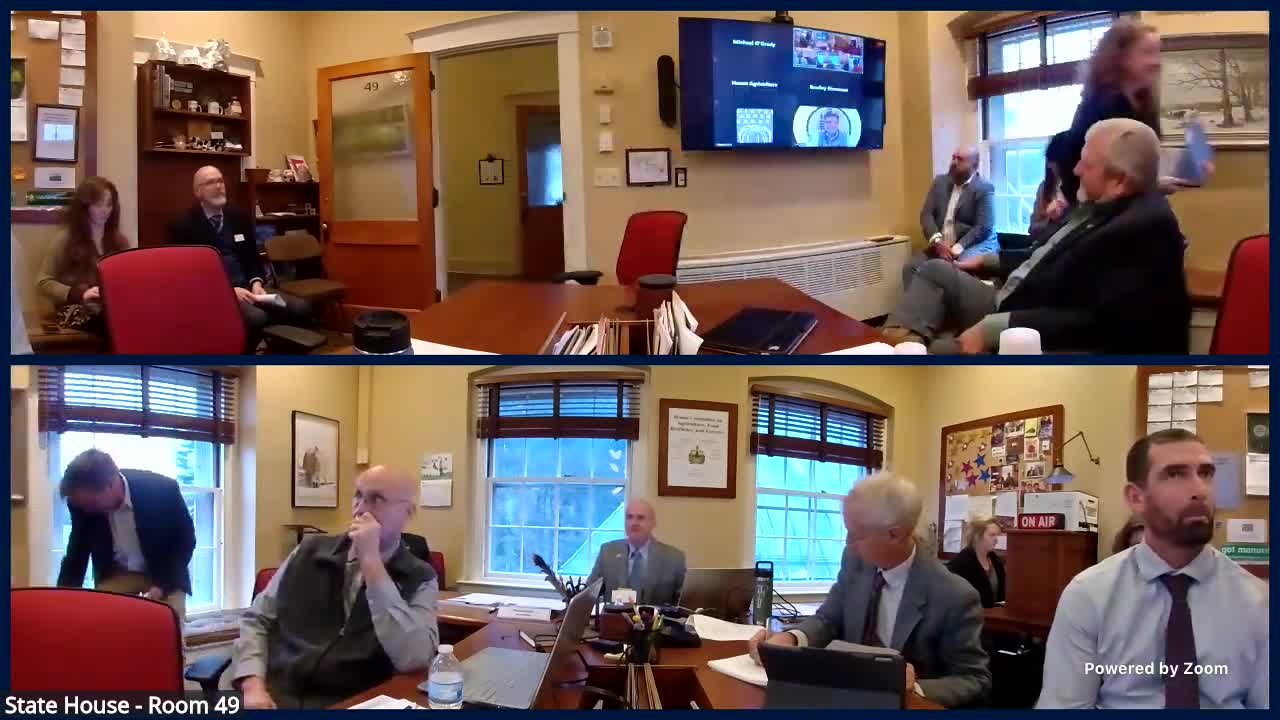Loggers and FPR warn of weak pulp markets, tariffs and federal uncertainty
Get AI-powered insights, summaries, and transcripts
Subscribe
Summary
Logging contractors told the House Agriculture, Food Resiliency & Forestry committee that pulplog and low‑grade markets have collapsed in places, 20% tariffs on imported equipment are deterring reinvestment, and federal funding uncertainty is delaying state forestry work and staff support.
Dana Duran, Executive Director of the Professional Logging Contractors of the Northeast, told the committee that low‑grade pulp and biomass markets in the region have deteriorated to historic lows and that several regional pulp purchasers are pausing purchases or curtailing intake. “Low grade markets are probably as bad as they have ever been in the last 125 years,” Duran said, listing multiple firms that have reduced or stopped low‑grade purchases.
Duran described how tariffs are affecting the industry’s ability to buy and maintain equipment: he said a 20 percent tariff on imported logging equipment and parts — including many cut‑to‑length harvesters manufactured overseas — is deterring contractors from buying or replacing machinery and driving down reinvestment into operations. “Contractors are just not reinvesting; they’re not running,” Duran said, describing firms that have pulled out of the woods or diversified into earthwork to survive.
Oliver Pearson, director of forests at the Department of Forests, Parks & Recreation, echoed the market concerns and highlighted federal funding uncertainty. He said a pending USDA disaster recovery award (about $31 million to Vermont for 2023–24 disasters) is awaiting final signature, and he warned that other cooperative federal assistance has been slow or reorganized, leaving some FPR staffing and program awards unresolved. Pearson also previewed state steps: a low‑interest equipment loan pilot for logging equipment tied to clean‑water goals, AMP compliance support grants and proposed statutory changes for fire prevention and wood‑products permitting.
Committee members asked about the outlook for higher‑value sawlog markets and for local sawmills; witnesses said sawlog demand persists but is slow and tied to housing and renovation activity and that depressed pulp markets limit the ability to harvest mixed stands economically. Duran warned that roughly 60 percent of a typical harvest is low‑grade material and that without viable outlets for that wood, landowners and loggers cannot sustain balanced forestry.
Pearson said the Forest Service reorganization and federal budget uncertainty require committee attention and that the state will monitor awards and grant execution closely; he also noted pilot programs intended to preserve low‑impact equipment financing and to support loggers complying with aquatic management practices. The committee asked for written follow‑up and scheduled further forestry testimony in January.
The hearing record contains no formal votes on forestry bills in this session; witnesses were asked to provide supplemental materials and data for follow‑up review.
